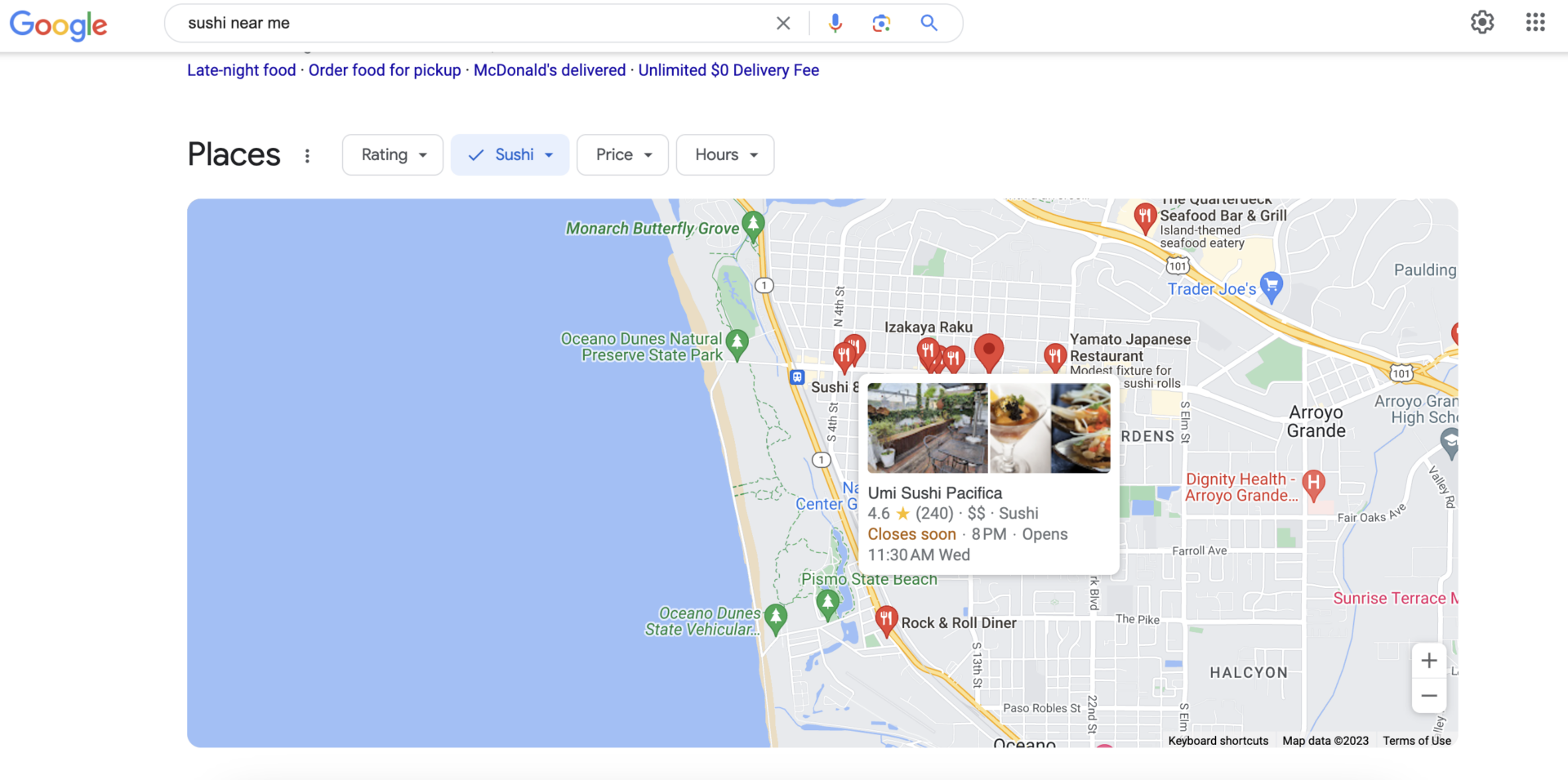Local Memo: Google Confirms Algorithm Update

Local Memo: Google Confirms Algorithm Update
In this week’s update, learn about Google’s latest core algorithm update; the broad launch of an expandable Local Pack map; the impact of Europe’s Digital Services Act; a new appeals form in Google Maps; help for video verification; and the launch of Threads on the web.
Google Confirms Algorithm Update
Google has officially announced the August 2023 core update, the first major algorithm update since March. The announcement was posted to X on August 22. As with previous core updates, Google says this update will take about two weeks to roll out fully. In 2022, Google released two core updates, one in May and one in September; in previous years these updates have been somewhat more frequent.
As usual, there will be winners and losers in the wake of the August update, though early indications suggest that the impact has been modest so far. Core updates impact all regions of the globe and all content types, and the impact on specific sites can be difficult to interpret. Back in 2019, Google published a set of guidelines and questions to consider if your site was impacted by a core update; this is still considered the standard reference in such cases.
Google’s Expandable Local Pack Map Launched Broadly
Experiments with an expandable or slidable map in the Local Pack have been reported by several users this year, including our own Mike Snow. Now Google seems to be launching the feature to all users, in a form where the Local Pack map enlarges to take over the full width of the screen when moused over, obscuring the three business listings but potentially showing a broader set of businesses for the user to choose from.
If the user clicks any of the map pins, a small popup card appears for that business, showcasing two photos, the business name, a ratings summary, the business category, and an indication of whether the business is open now. Clicking again on that business causes the map to slide to the left and launches a large scrollable card with full business profile information. Notably, the user is not taken to the Local Finder, reducing exposure of businesses ranked further down.

Expanded map view in Local Pack with selected business showing card popup
Europe’s Digital Services Act Goes Into Effect, Targets Online Content
The Digital Services Act, passed by the EU in 2022, has gone into effect. The act is designed to protect users from various forms of harmful content online, including misinformation, as well as preventing companies from targeting ads on the basis of sensitive characteristics such as politics, ethnicity, and sexual orientation. As has previously been the case with privacy regulation, these new protections are likely to have a broad impact outside the EU, with companies like Meta and Google already moving to increase transparency in content moderation and to provide opt-out controls for users globally.
Meta has announced that EU users will soon be able to opt out of algorithmic sorting of the content feeds in Facebook and Instagram. With the change, users will be able to configure their feeds only to show content from accounts they follow. TikTok has made a similar announcement, saying the app will make personalized recommendations optional for EU users in the For You feed. Some of these changes are expected to eventually reach US users.
Google Maps Publishes Appeals Form for UGC
Google Maps has published a new appeals form for users who submit photos, reviews, edits, and other content to Google Maps and discover that the content has been rejected due to a supposed policy violation. The appeals form appears to be available to EU users only at this point, and to be linked to the rights conferred by the EU’s new Digital Services Act, discussed above. Users are given the option to appeal the removal of content and to track the process of the appeal within their Google accounts.
Google Offers Help for Video Verification
Google is offering some helpful guidelines to assist users in completing the video option for getting their Google Business Profiles verified. An FAQ on the topic was recently published to the GBP help forum, including the following tips:
- Businesses without a physical location should include a branded vehicle or other branded materials in their videos.
- If you’ve uploaded a video already and are asked to update again, it’s because the first video wasn’t accepted. You’ll need to shoot a new video and try to be sure to meet all requirements.
- Videos must consist of one continuous shot without editing.
- If you have a business location, you should capture its signage, evidence of items for sale or services performed, and your own access to employee-only areas.
More detail is given in the original post.
Meta Rolls Out Threads on the Web
Meta is rolling out a web experience for the Threads messaging app at threads.net. Users can log in using their Instagram credentials in order to gain access. The web experience is more or less a direct copy of the phone app, with basic controls shown in the form of five icons at the top of the feed. After an early surge caused Threads to become the fastest growing app in history, usage has diminished significantly, but Meta is continuing to add features and functionality in the hopes that user attachment to Threads will grow in an era when many are looking for a viable alternative to X.




